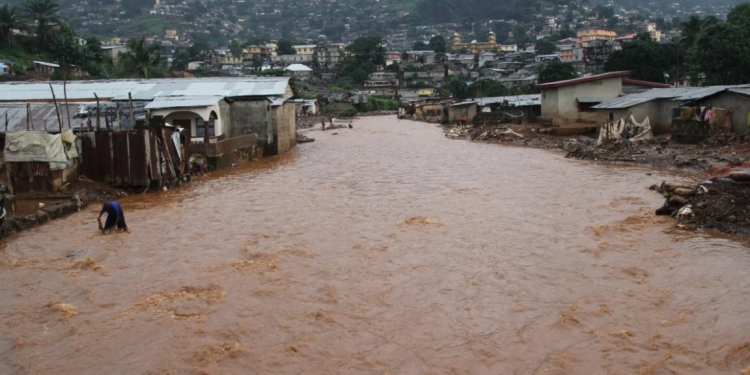By Sulaiman Aruna Sesay
Freetown, the capital of Sierra Leone, is once again under severe flooding as the rainy season starts. It is not the first time that Freetown has experienced such extreme weather, and the situation worsens year after year. The African country has had no respite from the devastating effects of flooding, and it seems that it is set to continue.
Many factors contribute to the flooding, including deforestation, poor urban planning, and weak infrastructure. The issue of deforestation, in particular, is a significant menace to the country. Sierra Leone is often described as an “emerald” due to its lush greenery, which many locals rely on for their economic livelihood through farming. The excessive logging activities in the country have caused massive deforestation, reducing the trees’ capacity to absorb water and causing disastrous flooding. Deforestation is detrimental to the environment, and the Sierra Leonean authorities must increase protection measures to curb it.
During the most recent floods, the same problems that arose in the past continue to appear in Freetown. For instance, the poorly planned urbanization is a significant contributing factor. It is highly perplexing that the authorities consistently approve building permits on the floodplains, blocking the waterways, and obstructing the natural water drainage systems. This lack of long-term planning and vital infrastructure has resulted in severe flooding and the displacement of people from their homes, which is entirely avoidable.
The Sierra Leonean government must prioritize infrastructural development to ensure fast and sustainable flood response. It must invest in early warning systems and provide adequate funding for disaster preparedness and response. Risk-prone areas must be identified and evacuated to ensure the safety of the vulnerable populations.
Sierra Leone must take a more proactive approach to address flooding problems. The government must provide long-term solutions through urban planning, including the protection of waterways, implementation of zoning laws, and environmental conservation efforts. In doing so, it will assist with a sustainable solution that will protect the country’s citizens from the catastrophic effects of flooding.











